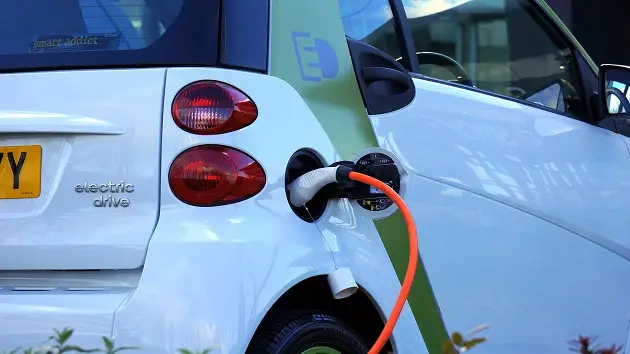The US Energy Department has announced it will issue a loan worth $2.5 billion to a joint venture between LG Energy Solutions and General Motors Co., to be used to finance the construction of new lithium ion battery manufacturing facilities.
The joint venture, named Ultium Cells Inc., is expected to close on the loan in the coming months, with the US Energy Department’s Advanced Technology Vehicles Manufacturing (ATVM) loan program. It will be the first loan funded by that program since 2010, and it will be the first loan by the US Energy Department that is exclusively for the construction of new battery cell manufacturing facilities. In April, the Energy Department made a conditional commitment to loan $107 million to Syrah Resources, a graphite miner, to expand an existing electric vehicle battery parts facility in Louisiana.
Previously the program has provided low-cost government loans to Tesla Inc, Ford Motors, and Nissan, however those only included battery manufacturing as one component of what the loan was designed to fund.
The initiative is partly motivated by President Joe Biden’s declaration that by 2030, the United States should see 50% or more of US automobile manufacturing be electric, or plug-in hybrid vehicles.
The director of the Energy Department’s loan program, Jigar Shah, said in an interview, “We have to have vehicle manufacturing capacity but also battery manufacturing capacity. This project provides one of the newest additions to battery manufacturing scale in this country.”
In a statement, Ultium Cells Inc. said that the new manufacturing “facilities will create more than 5,000 new high-tech jobs in the United States. We are grateful for the consideration and look forward to working with the Department of Energy on next steps.”
According to the plan, GM and LG intend to build three battery plants together, using a joint investment of more that $7 billion. Production is expected to begin in August at the Warren, Ohio facility, according to a spokeswoman. Currently the Ohio plant employs 700 workers.
The Tennessee facility is expected to begin production in 2023, and the facility planned for Michigan is expected to become operational in 2024. One condition of the loan agreement is that employees are paid the local prevailing wage and fringe benefits.
Shah went on, “The goal is to… help these companies move faster and farther than they otherwise would have.”
According to Shah, the department has already received over $18 billion in requests for loans from the auto program. He noted, the Department has at least another $5 billion in requests that are in the preparation phase, and said, “I do think there will more loans issued.”
Currently the program has $17.7 billion capable of being awarded as loans, and Shah noted, “for motivated borrowers, they can close these loans rather quickly.”
Syrah, the Australia-based graphite mining operation, plans to use its loan to expand a Louisiana plant that will process graphite mined in Mozambique into anodes, the positively charged terminal of a battery. According to the plan, the facility is expected to provide enough anodes for 2.3 million electric vehicles by 2040.
In a statement from February, the Energy Department said it planned to provide $2.91 billion in grants to facilitate production of advanced batteries, fund battery raw material refining and production plants, battery cell manufacturing facilities, and rare earth battery recycling facilities.

